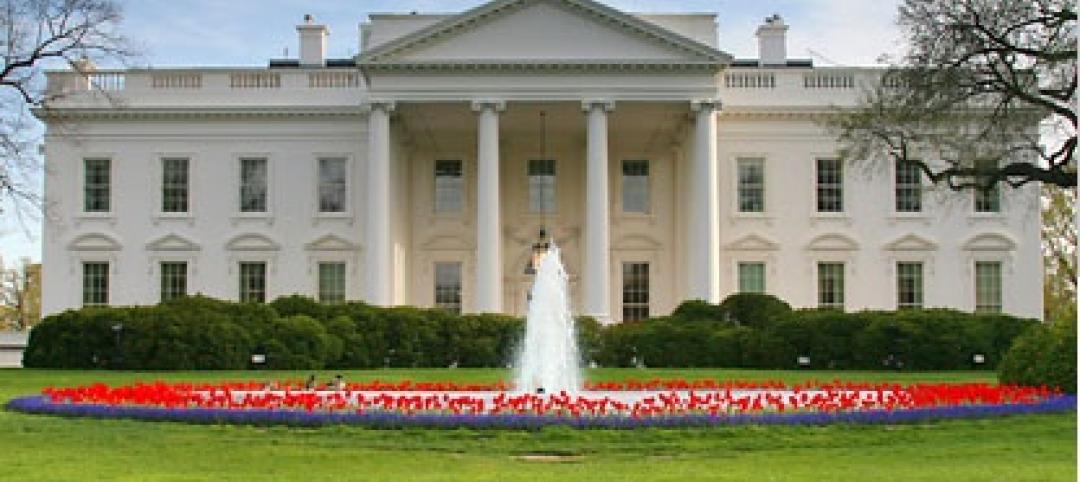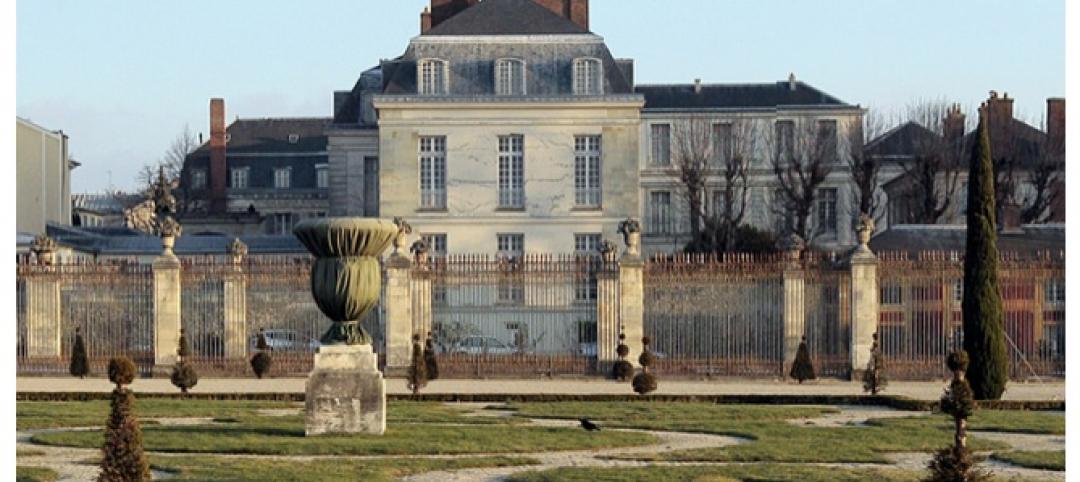1. Johns Manville ENRGY 3.E Halogen-Free Polyiso Insulation
Johns Manville is the first manufacturer to sell a polyisocyanurate roofing insulation not containing TCPP, or Tris (1-chloro-2-propyl) phosphate, the halogenated flame retardant used in polyiso and spray foam.
2. Organic Furnishings from Ekla Home
These furnishings are made from natural latex and do not require chemical flame retardants.
3. KI Chair with AirCarbon Plastic
The materials that go into the KI Chair come from agriculturally-sourced methane rather than petroleum, which makes the chair carbon-negative.
4. FocalPoint Bioretention System
This filtration systems provides the performance of natural storm water filtration on a very small footprint.
5. Multistack Magnetic Levitation Chillers with Danfoss Compressors
These chillers cool offices, schools, and large commercial buildings; they are energy-efficient and eliminate the need for mechanical seals, gears, pumps, and many other conventional components.
6. Fluid-Applied Cat 5 Air Barrier System from Prosoco
The parts that make up these air barriers are based on the high-performance "hybrid" polymer chemistry, which lacks solvents and isocyanates; in addition, the removal of phthalate plasticizers makes them eligible for use in Living Building Challenge Products.
7. Clean Energy Collective
The collective develops locally-sited photovoltaic facilities across the U.S. and engages with local utilities so that local people can purchase and own PV panels within a shared array.
8. Cascadia Clip Thermal Spacers
The Cascadia Clip offers support for cladding over insulation, and it decreases thermal bridging more effectively than conventional methods.
9. Marvin Windows with U.S. Passive House Certification
Marvin Windows is the first major American window manufacturer to issue a Passive House Institute U.S.-certified window. These windows are available with FSC-certified wood.
10. USAI Lighting Color Select Tunable Lighting
This product blends the efficacy of LEDs with the ability to provide users complete control over the color and intensity of their interior lighting.
Read BuildingGreen's full report here.
Related Stories
| Jan 4, 2011
Product of the Week: Zinc cladding helps border crossing blend in with surroundings
Zinc panels provide natural-looking, durable cladding for an administrative building and toll canopies at the newly expanded Queenstown Plaza U.S.-Canada border crossing at the Niagara Gorge. Toronto’s Moriyama & Teshima Architects chose the zinc alloy panels for their ability to blend with the structures’ scenic surroundings, as well as for their low maintenance and sustainable qualities. The structures incorporate 14,000 sf of Rheinzink’s branded Angled Standing Seam and Reveal Panels in graphite gray.
| Jan 4, 2011
6 green building trends to watch in 2011
According to a report by New York-based JWT Intelligence, there are six key green building trends to watch in 2011, including: 3D printing, biomimicry, and more transparent and accurate green claims.
| Jan 4, 2011
LEED standards under fire in NYC
This year, for the first time, owners of 25,000 commercial properties in New York must report their buildings’ energy use to the city. However, LEED doesn’t measure energy use and costs, something a growing number of engineers, architects, and landlords insist must be done. Their concerns and a general blossoming of environmental awareness have spawned a host of rating systems that could test LEED’s dominance.
| Jan 4, 2011
LEED 2012: 10 changes you should know about
The USGBC is beginning its review and planning for the next version of LEED—LEED 2012. The draft version of LEED 2012 is currently in the first of at least two public comment periods, and it’s important to take a look at proposed changes to see the direction USGBC is taking, the plans they have for LEED, and—most importantly—how they affect you.
| Jan 4, 2011
California buildings: now even more efficient
New buildings in California must now be more sustainable under the state’s Green Building Standards Code, which took effect with the new year. CALGreen, the first statewide green building code in the country, requires new buildings to be more energy efficient, use less water, and emit fewer pollutants, among many other requirements. And they have the potential to affect LEED ratings.
| Jan 4, 2011
New Years resolutions for architects, urban planners, and real estate developers
Roger K. Lewis, an architect and a professor emeritus of architecture at the University of Maryland, writes in the Washington Post about New Years resolutions he proposes for anyone involved in influencing buildings and cities. Among his proposals: recycle and reuse aging or obsolete buildings instead of demolishing them; amend or eliminate out-of-date, obstructive, and overly complex zoning ordinances; and make all city and suburban streets safe for cyclists and pedestrians.
| Jan 4, 2011
An official bargain, White House loses $79 million in property value
One of the most famous office buildings in the world—and the official the residence of the President of the United States—is now worth only $251.6 million. At the top of the housing boom, the 132-room complex was valued at $331.5 million (still sounds like a bargain), according to Zillow, the online real estate marketplace. That reflects a decline in property value of about 24%.
| Jan 4, 2011
Luxury hotel planned for Palace of Versailles
Want to spend the night at the Palace of Versailles? The Hotel du Grand Controle, a 1680s mansion built on palace grounds for the king's treasurer and vacant since the French Revolution, will soon be turned into a luxury hotel. Versailles is partnering with Belgian hotel company Ivy International to restore the dilapidated estate into a 23-room luxury hotel. Guests can live like a king or queen for a while—and keep their heads.
| Jan 4, 2011
Grubb & Ellis predicts commercial real estate recovery
Grubb & Ellis Company, a leading real estate services and investment firm, released its 2011 Real Estate Forecast, which foresees the start of a slow recovery in the leasing market for all property types in the coming year.
| Jan 4, 2011
Furniture Sustainability Standard - Approved by ANSI and Released for Distribution
BIFMA International recently announced formal American National Standards Institute (ANSI) approval and release of the ANSI/BIFMA e3-2010 Furniture Sustainability Standard. The e3 standard represents a structured methodology to evaluate the "sustainable" attributes of furniture products and constitutes the technical criteria of the level product certification program.










